“I’m an activist first, being a photographer allows me a greater and more influential audience"
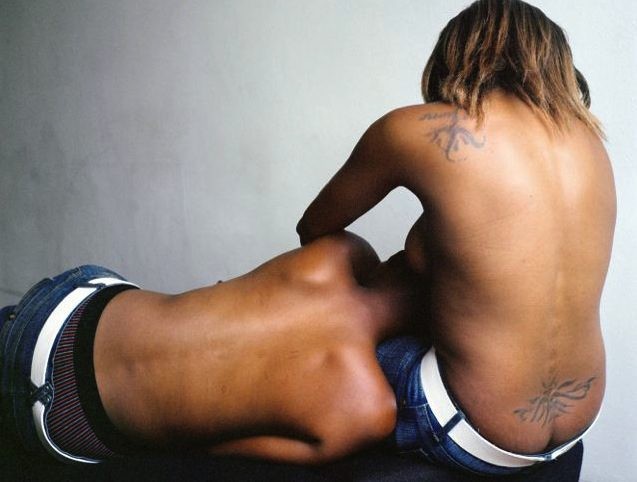
Pamella Dlungwana: You’ve always stated that picking up the camera was an attempt to write black South African lesbian identities into our visual history, and looking at your work, in particular Faces and Phases, this is not where you’ve stopped. Why? Zanele Muholi: I’ll start with yes; I started photography because I was frustrated by …
Pamella Dlungwana: You’ve always stated that picking up the camera was an attempt to write black South African lesbian identities into our visual history, and looking at your work, in particular Faces and Phases, this is not where you’ve stopped. Why?
Zanele Muholi: I’ll start with yes; I started photography because I was frustrated by how there were no images of black lesbians anywhere I looked. At the time I was working as a reporter for Behind The Mask and it struck me that our struggle was in a way operating within a void, if people don’t see you, and by this I mean if they don’t connect to your personhood, they can easily violate you or look the other way if they are witnesses to violence against you. It was also a reaction to the desperation in trying to connect with the changes that were taking place in South Africa at the time. Not having an active visual archive of black lesbians in the country meant that we could be casually or carelessly written out of our country’s history, that our contributions would not be tallied, and as a community that’s not acceptable. I did not see myself anywhere and so I sought to write myself in, and with me and through collaborations with friends and supporters my work started. Obviously, in telling any story you can’t just be the star of the tale, other people feature and their contribution and their own stories become part of the whole narrative, and so capturing images of lesbian and transgender men and women in South Africa as well as other parts of the continent and the Diaspora was an organic and practical development. You never act alone, not with things this important, you need community.
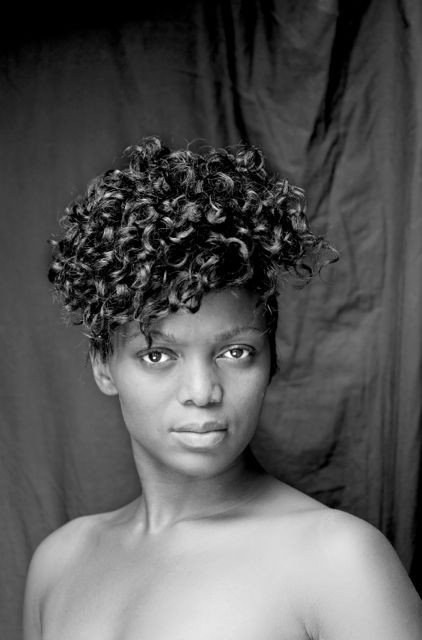
<figcaption> Zanele Muholi 'Ayanda Magoloza, Kwanele South, Katlehong, Johannesburg', 2012, © Zanele Muholi and Stevenson Cape Town/Johannesburg
.
PD: You insist on the ‘visual activist’ tag, why?
ZM: I can always just be a ‘photographer’ that sounds sexier, as you’ll say, but what is that in relation to my agenda? How does it validate and remind me of my agenda? That instead of being someone who is just taking an image Pam, my friend, I am also highlighting that such women are alive, live and love others and aspire to the same things heterosexual people aspire to while they have the capacity to contribute and actually do contribute to our society as a whole. How does being simply a photographer keep that pertinent? I’m an activist first, being a photographer allows me a greater and more influential audience, I can activate and shift multiple spaces, many of which I would have little access to if I operated differently.
PD: This year has been a busy one for you; you’ve collected a number of awards as it’s progressed. How has this affected you?
ZM: Well, I’ll correct you there, every year has been ever busy for me, this is just the first one I’ve received one award after another. To be given the recognition by such institutions as Prince Claus Fund,Carnegie andIndex on Censorship is humbling and affirming. It means that the work I’ve been busy doing over the last ten years is seeing some success, people are seeing us, they are acknowledging that we exist, that we have a voice and will not be silenced and erased without a care. Getting awards also is a way of reporting to each and every participant in each and every series I’ve worked on that their presence is felt, that they did not end up just being caged by a gallery frame but that their visual narratives expanded beyond that space, that they were able to penetrate spaces they otherwise would not have had access to.
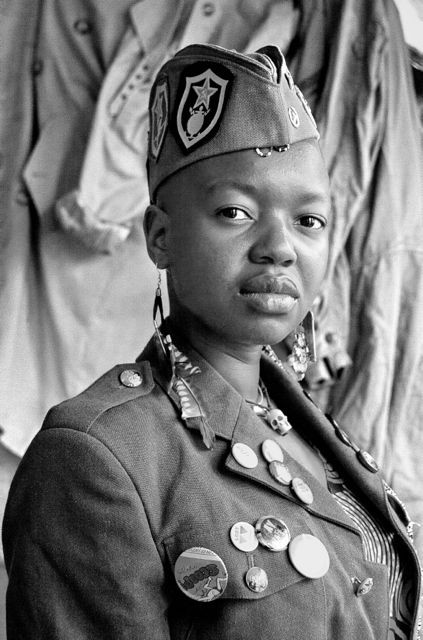
<figcaption> Zanele Muholi 'Skye Chirape, Brighton, United Kingdom' 2010; © Zanele Muholi and Stevenson Cape Town/Johannesburg</p>
<p>.
PD: You recently showed with Prince Claus Fund and have the award ceremony to look forward to. How was that experience?
ZM: Just being nominated for the award was an honour I cannot describe. Just look at who has been given the same honour before and you get the feeling I was having. I was in a space that I would never have dreamt possible when I first started working, I was in the company of a team that was supportive and really got my jive, you know? People who connect with the gravitas of the work and its social and historical impact. Such events happen in order to remind you to keep going, that what you are doing is important, and that the archive is as important to you as you keep adding onto it as it is to those who have the opportunity to see the work you’ve created. The awards ceremony is an opportunity to connect with other awardees, interested parties and possible future collaborators. These things seem like parties but they are spaces of great influence and one can’t get drunk in the excitement of it and forget the mission. I look forward to it.
PD: You started at Market Photo and went on to Ryerson University, Toronto. What have you gotten from each institution?
ZM: At Market Photo all I can say is, I got my wings. I had this desire, this agenda to tell the stories of black lesbians in my country, to appropriate a space in the country’s visual history and Market Photo gave me the skill to do so. I was given the opportunity to work with greats likeDavid Goldblatt, who’s really the father of South African photography, and to know that I have had access to be taught by such a great artist is still something I have great gratitude for. Ryerson had to happen, I had to do it. I was annoyed at academia, I was annoyed at how academics appropriate our stories and generate a language around it that’s almost impossible to understand. I wanted to correct that in my own work, I needed to know how and why I would be recorded, I needed to understand the machine from inside, I needed to get myself the equipment to tell my story and defend it when it comes under attack. That opportunity exposed me to much more than I initially thought it would. I was away from home and in an unfamiliar space, I needed to understand the mechanics of that space and keep my work alive. This is where I also started collaborations with queers from outside of South Africa. I was so aware of my connection to home, not just in its importance to the kind of work I do, but also to it as a place. I walked out of each institution with better tools to do the work I am here to do and with a greater sense of its importance.
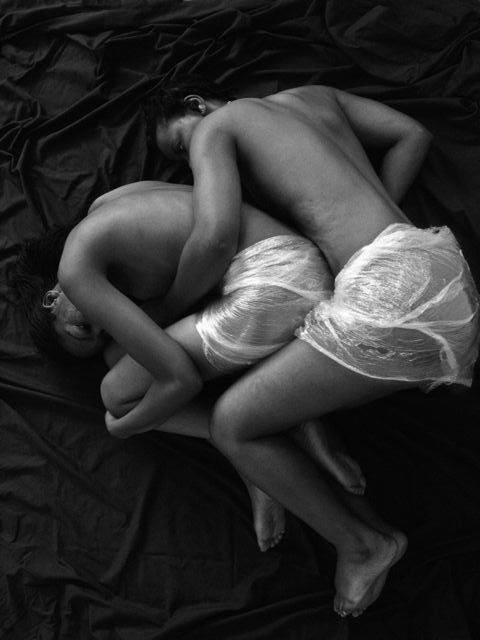
<figcaption> Zanele Muholi 'Being', 2007 Triptych (part III); Silver gelatin prints and a Lambda print; Each print: 30 x 22,5cm, © Zanele Muholi and Stevenson Cape Town/Johannesburg
.
PD: You appear a lot in your work, there’s the portrait in Faces and Phases and Being (T)here as well as in the Being series with your ex-partner. Why?
ZM: Difficult Love would not have been possible if I hid myself and my private life from the penetrating gaze of the camera, the film crew and such, because how do I ask others to make themselves vulnerable by exposing their sexuality publicly in a space where hate crimes are rampant when I am unwilling to do so myself? My appearance in my work is a conversation, it’s an article, and it is a protest that is ever raging. My body, as new to me as it is, is old, it has been captured naked through the ages and as such I want to take it back, reclaiming how it is viewed, challenging how it is valued and by whom. Faces and Phases is an active archive of black lesbian realities, it would be careless of me to capture the stories of others and neglect myself. Being (T)here was conceived when I was in a residency in Amsterdam, I had been fascinated by the red light district and the zoning for the sex industry; sexuality is everywhere like sex in soap adverts and for other miscellaneous products. I wore my traditional Zulu outfit and challenged the passerby to interact with this fully clothed woman in the window – I was fully dressed according to my culture but half naked and ‘asking for it’ in Dutch terms. So there is a sense of play here. The work I did with Being is part of an ongoing series, there’s a lot that still needs to be done and said with that work.
PD: What next?
ZM: I keep working. I am expanding the work I’ve done with Faces and Phases, the people featured there have lives outside of those black and white images and those narratives need to be documented. Being is also an important body of work, I want to illuminate the sensuality of black women to highlight points not just referring to our lived experience as one of hardship and trial, but also of love and affection, those things that make life bearable. I am building up my organisationInkanyiso, which documents the lives of black lesbians in South Africa and is based in Johannesburg, working with young lesbian filmmakers and photographers. This is important to me first, because I understand the need for access to certain spaces and how when we are part of a community we need to create and share resources and keep the archive ever alive. We work with funding from nowhere and have to hustle to make every contribution happen, this project is a long dream for me and to have finally launched it in February was a step I needed to take, now I need to take more steps and see where I can push it.
.
Culture in Action: Prince Claus Awards Week, Prince Claus Fund / various locations in Amsterdam, December 9 - December 13, 2013.
Pamella Dlungwana is a Cape Town based researcher and coordinator.
In Conversation
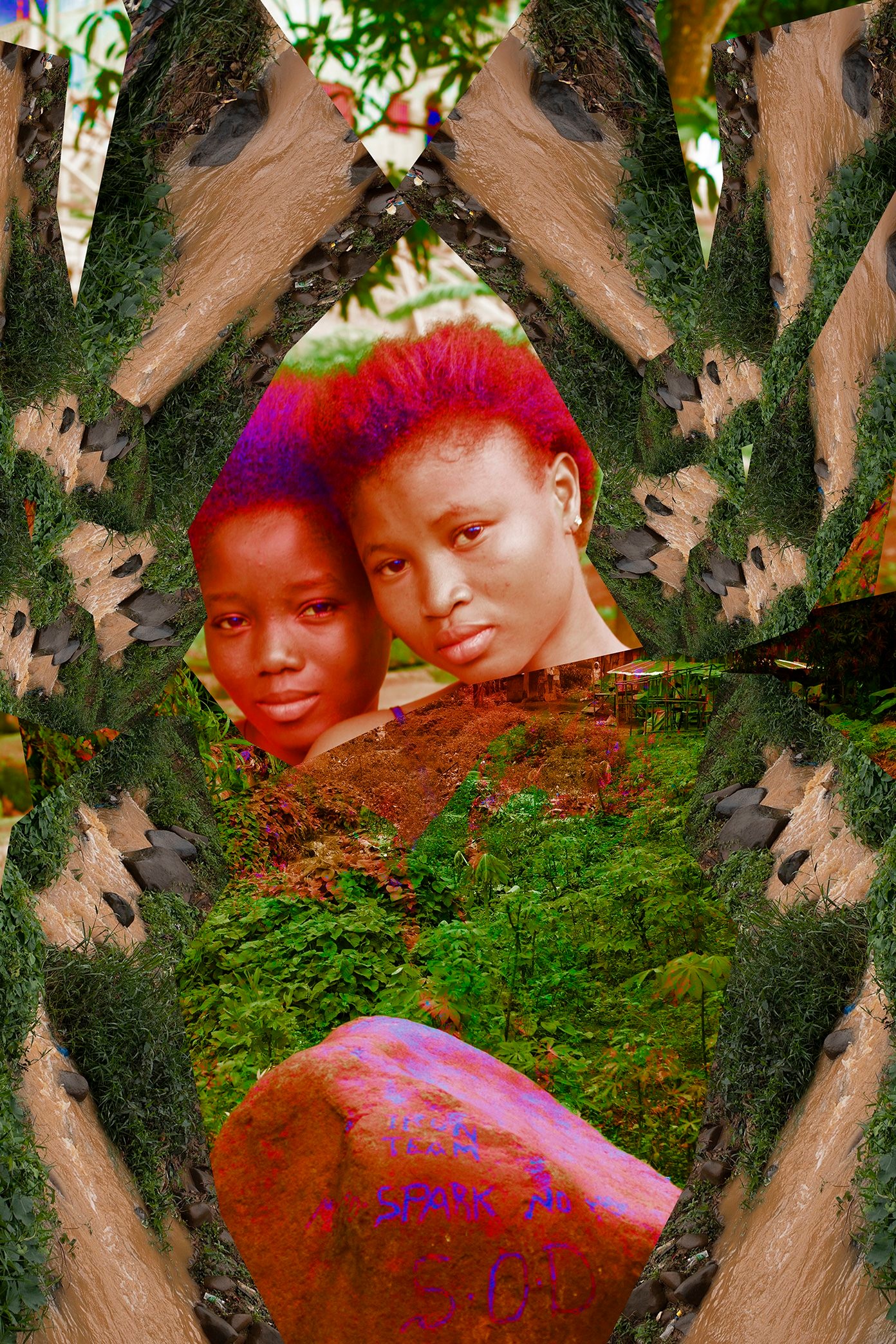
The Deconstructive Lens of Ngadi Smart: From Drag to Climate Change
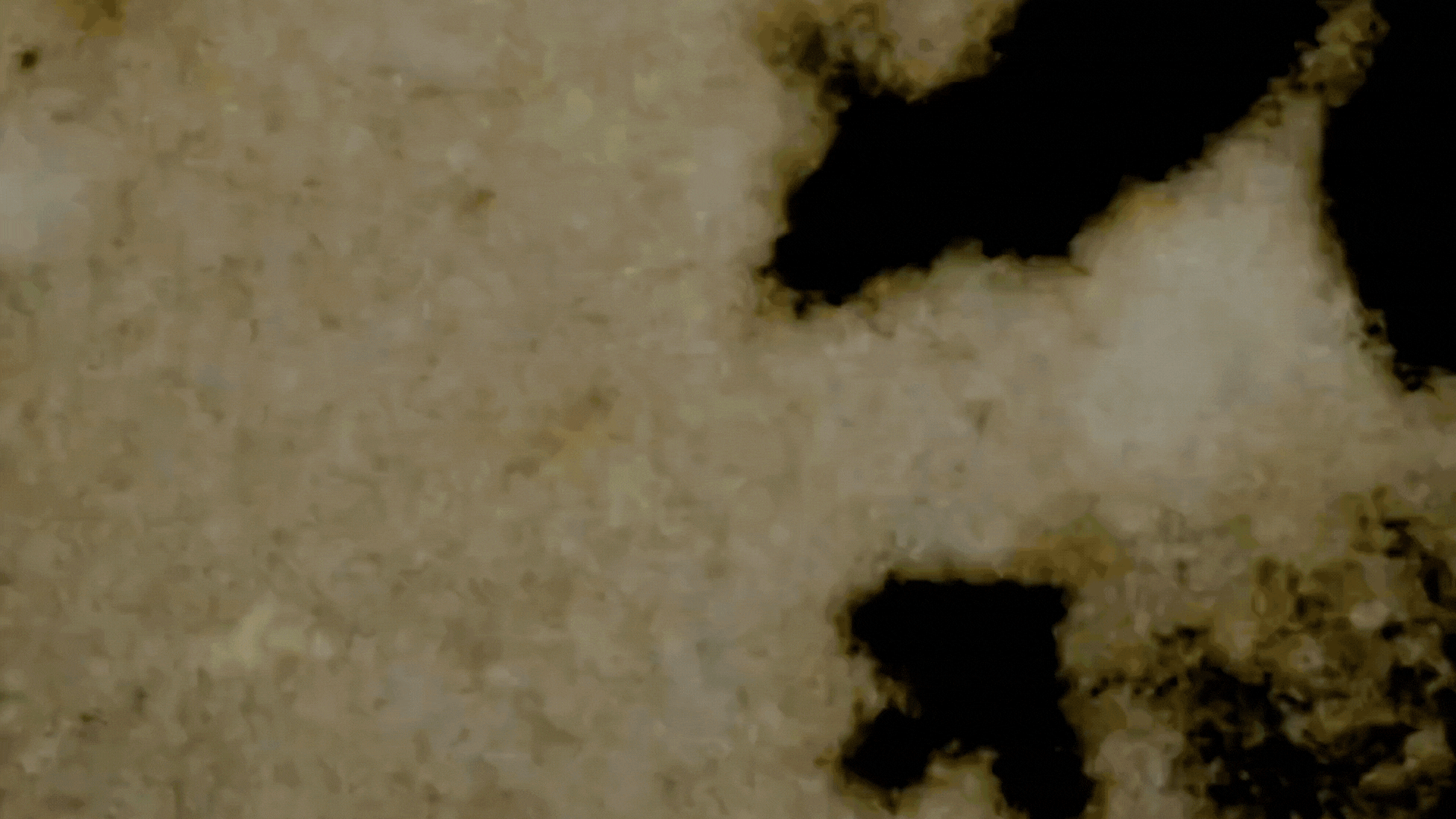
On Ghosts and The Moving Image: Edward George’s Black Atlas
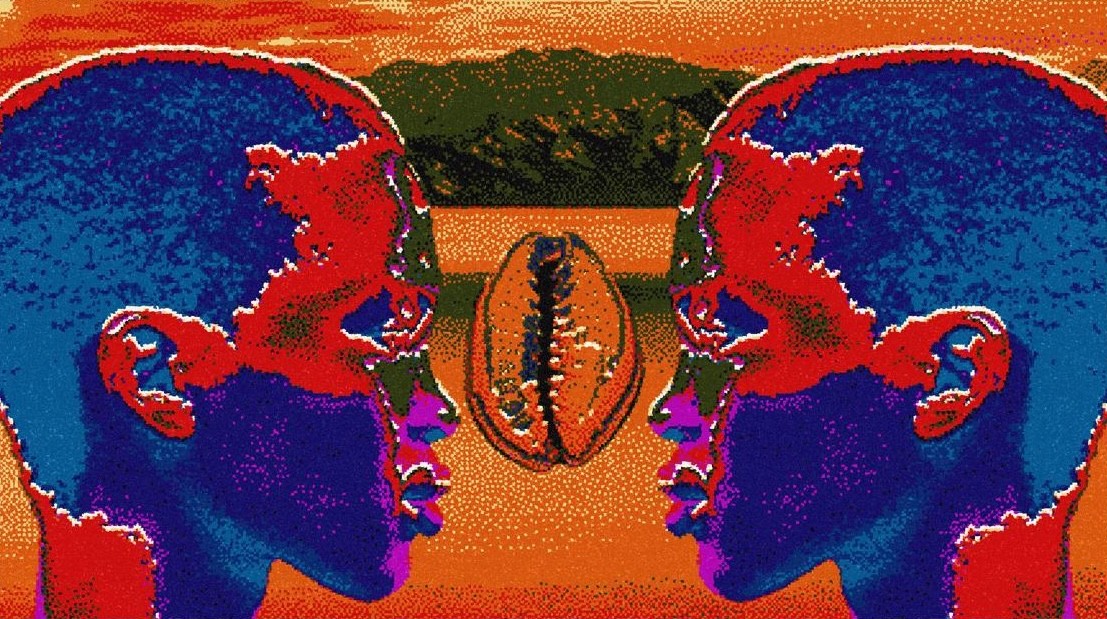
On Exile, Amulets and Circadian Rhythms: Practising Data Healing across Timezones
In Conversation

The Deconstructive Lens of Ngadi Smart: From Drag to Climate Change

On Ghosts and The Moving Image: Edward George’s Black Atlas
